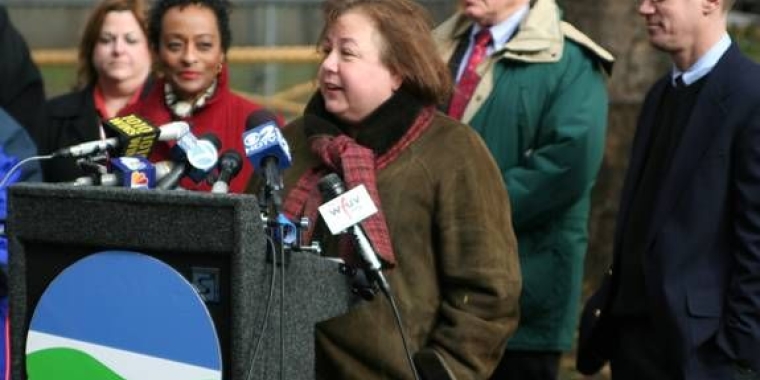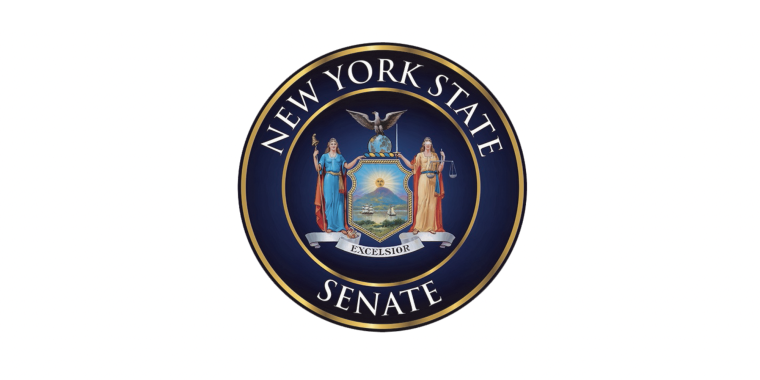
Senator Liz Krueger Calls for Environmental Action on Earth Day
Liz Krueger
May 6, 2009

Urges Passage of Key Environmental Legislation
Albany, NY—Today, in support of Earth Day, State Senator Liz Krueger (D-Manhattan), called for New York to take action for the environment.
"Earth Day is a chance for all Americans to think about how they can become more environmentally conscience," said Senator Krueger. "That is why I am working with my colleagues in the Senate to step up and put New York at the front of the environmental movement. There currently are a number of legislative proposals that could have a huge impact on the future if passed."
Since arriving in Albany, Senator Krueger has made environmental issues a top priority. She currently sponsors legislation calling for a ban of Styrofoam (S.747A), a bill which requires recycling of rechargeable batteries (S.3593), and a bill which requires cigarette filters to be biodegradable (S.3587).
The Food Service Waste Reduction Act (S.747A) would phase out the use of polystyrene products, more commonly known as Styrofoam. Polystyrene is a notorious pollutant because of the difficulty to either reuse or recycle it. Furthermore, Styrofoam packs our landfills because it can take hundreds of years to fully decompose.
Bill S.3592 will require rechargeable battery manufacturers to work in partnership with New York retailers to set up a free, easily accessible recycling network for residents. New York needs rechargeable batteries to be recycled because they can contain toxic metals, such as cadmium, lead, and mercury. When these batteries are not properly disposed of, they can leak toxic pollutants into lakes, streams and land.
Cigarette filters are one of the most common causes of litter on our streets and in our parks. Bill S.3587 would address this problem by requiring them to be biodegradable which would be both a practical and economic solution to this problem.
Senator Krueger noted, "Each of these bills would reduce the amount of waste filling our landfills and littering the streets of New York. We must take advantage of such common sense legislation which exemplifies the policy of ‘Reduce, Reuse, and Recycle.’"
Senator Krueger was also pleased to see that the Bigger Better Bottle Bill was finally passed this year as a part of the budget after being stalled in the Senate for years.
"Passing the Bigger Better Bottle Bill is a great example of what the new Democratic majority in the Senate will do for the environment," said Senator Krueger. "Now we must build upon this success and continue moving the rest of the environmental priority bills which have been stuck in the Senate for years."
Three of the priority bills, advocated for by Environmental Advocates of New York, are the Environmental Access to Justice Bill (S.1635), the Wetlands Protections Bill (S.848), and the Greenhouse Gas Pollution Control Cap (S.1209).
The Environmental Access to Justice Bill would restore the original legislative intent of the State Environmental Quality Review Act (SEQRA) by allowing groups or individuals to challenge a SEQRA decision if they can demonstrate they will suffer harm as a result of a proposed project’s environmental impact, without having to show that the harm is different from that suffered by the public at large.
The Wetlands Protections Bill would give the Department of Environmental Conservation the authority to regulate fresh water wetlands which are important to maintaining the quality of drinking water in New York.
The Greenhouse Gas Pollution Control Cap would direct New York State’s Department of Environmental Conservation to develop programs which would reduce statewide global warming pollution 80 percent by 2050. The Cap would use 1990 as a baseline year and calls for reporting from all sources to begin in 2009. Annual 2.3 percent reductions from the baseline would begin in 2015.
"We cannot wait for others to take action," stressed Senator Krueger. "All of these bills will make a difference and set a precedent for the whole world. Being green is all of our responsibility, from the federal, to the state, to the local level."
-30-
Share this Article or Press Release
Newsroom
Go to Newsroom


